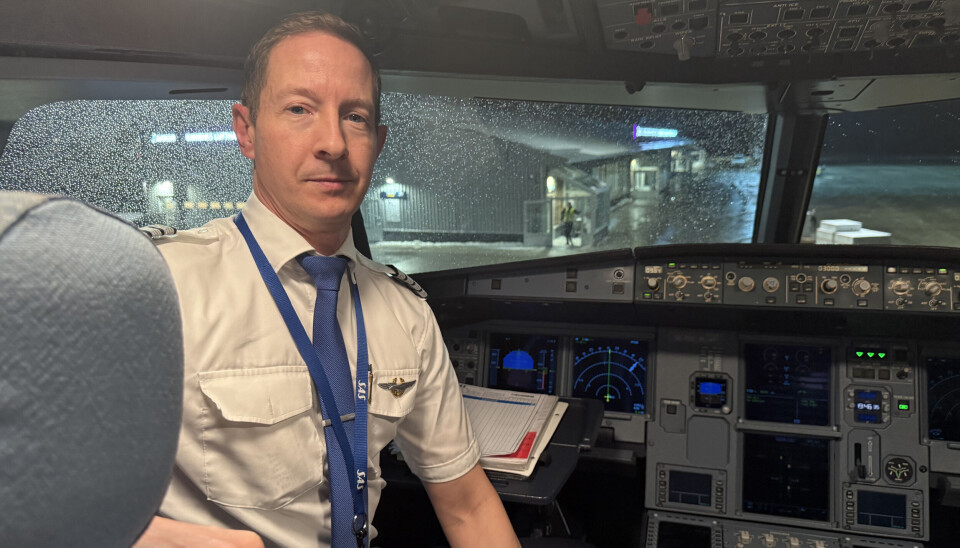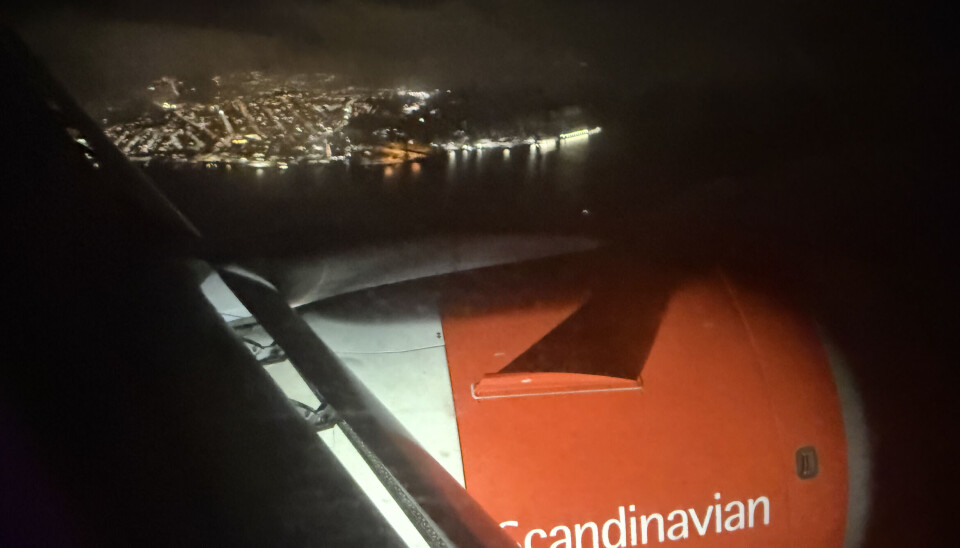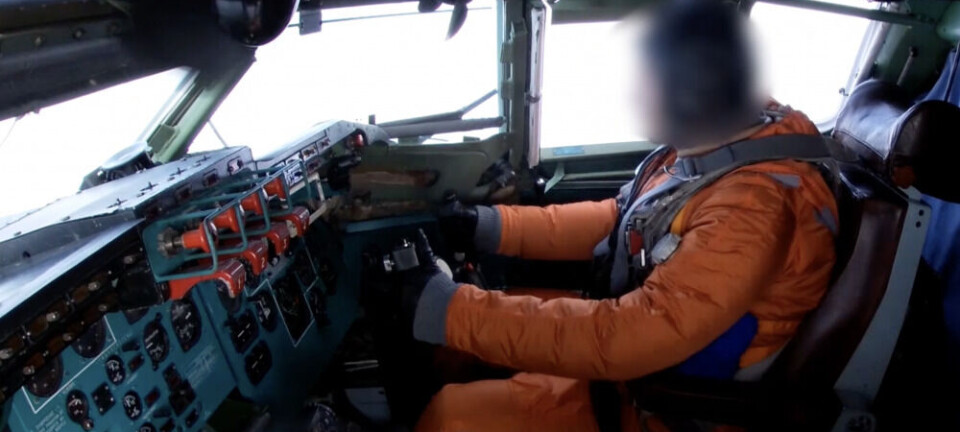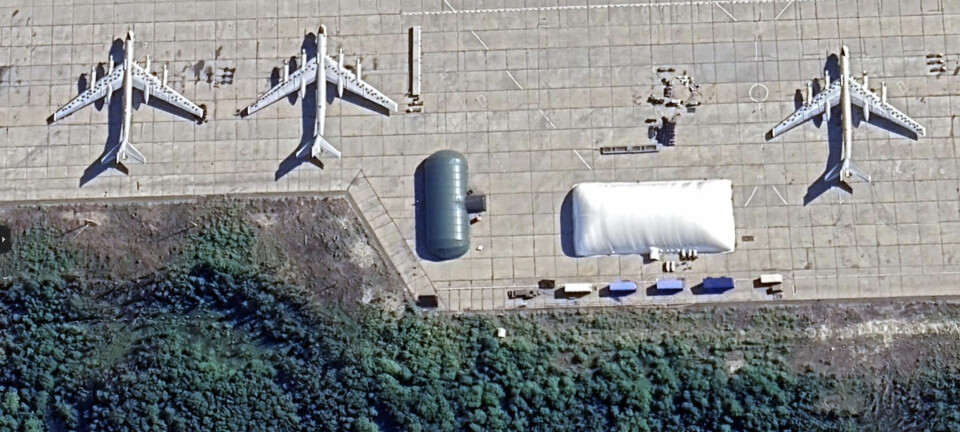
Russia intensifies electronic warfare against Norway
"We were spoofed on approaching Kirkenes today”
Norway is sounding the alarm after discovering that Russia is no longer only jamming the Global Navigation Satellite Systems (GNSS) across the border, but also spoofing GPS signals, an attack that can cause significant disruption to commercial aviation.
"We are worried, yes, and it is something we take into account on every single flight to East-Finnmark. We were spoofed on approach to Kirkenes today," says Johan Lester. He is captain with SAS and flew the northbound flight from Oslo Friday evening with Barents Observer among the passengers.
Kirkenes airport Høybuktmoen is a short 10 kilometers from the border with Russia and about 50 km from the military stronghold in the Pechenga valley from where the 200th Motorized Rifle Brigade and the 61st Naval Infantry Brigade regularly direct electronic warfare signals towards Norway.
Further on the Kola Peninsula is Olenya air base where Russia's aviation forces deploy a fleet of Tu-95MS bombers that frequently are flying south to launch cruise missiles against Ukraine, causing terrifying scenes as civilian apartments blocks and energy infrastructure are hit.
Ukraine, though, are hitting back. Drones were shot down near Olenya on several occasions last summer and fall. The Barents Observer previously published satellite images showing how the Russian military are taking measures to protect the planes and fuel tanks from incoming drones. Self-protection includes electronic warfare units aimed at jamming GPS signals.
Special inflight procedures
Commercial airliners flying to Kirkenes now take special measures.
"We have set up an approach procedure that does not include the use of GPS," says SAS captain Johan Lester.
He assures that the pilots take all safety precautions needed and passengers should not worry.
"But as a citizen of the Nordic countries and NATO, one should be generally concerned that this kind of spoofing takes place," says Lester.
He tells that the most significant disruption of satellite navigation signals were seen around 10,000 feet above ground.
"This is similar to what we see when we fly to destinations in the east Mediterranean, like Cyprus and Turkey," says captain Lester.
"But don't worry. We will not fly if it is unsafe."
East Finnmark region, like Finland and other European neighbors to Russia, have seen an exponential increase in jamming incidents since 2017. Last year, pilots flying to Kirkenes reported about disruption of GPS signals nearly every day.
Military operations
Such jamming comes from dedicated Russian military vehicles emitting high-power radio signals, blocking satellite communications and navigation systems.
Unlike jamming, spoofing aims to deceive GPS receivers by sending them false signals, indicating an erroneous geographical position. In cockpit, the systems then calculate an incorrect position, creating trajectory errors that are difficult for pilots to detect.
This is one reason alone why SAS, Widerøe and Norwegian have other methods than GPS for navigation when flying to Kirkenes.
Spoofing could, as a worst case scenario, mislead the pilot to unknowingly be directed to another position than the instruments show.

While jamming can be done by anyone with equipment bought on the internet, GPS spoofing is mainly carried out by military operations.
On Friday, both Norway’s Minister of Defense Bjørn Arild Gram and head of the Norwegian Armed Forces, General Eirik Kristoffersen, visited the Garrison of Sør-Varanger, located next to Kirkenes airport. Their vist were to oversee border guard soldiers who are the first to receive the Army's new Nordic winter uniforms.
First time spoofing
This week, the Norwegian Communication Authority (Nkom) together with the Police in Finnmark, conducted a series of measurements in the air space over East-Finnmark. The results were shocking, GPS signals are not only jammed but also manipulated.
It is the first time so-called spoofing is discovered on the Norwegian side of the border.
"We take the situation very seriously," says director of Nkom, John-Eivind Velure.
"Everyone who uses navigation systems should be able to trust the information they receive from the equipment. The fact that these frequencies are now being manipulated is unacceptable and illegal," Velure makes clear.
"We are now informing all relevant authorities, including the Norwegian Civil Aviation Authority. We will also send a letter to the International Telecommunication Union (ITU) to notify of the situation," Velure says.
He adds that the Norwegians are establishing dialogue with neighboring countries to inform them of the findings in East-Finnmark.
"We will also increasing our presence in the area," John-Eivind Velure says.
Not seen on ground
Chief of Staff with the Police in Finnmark, Tarjei Sirma-Tellefsen, says to the Barents Observer that the measurements made this week clearly show where the signals are coming from.

"The jamming comes from Russia," he says.
Sirma-Tellefsen underlines that spoofing is not seen on the ground, only up in the air.
"Measurements over the past week show disturbances at lower altitudes, down to 4,000 feet," he explains.
The police, however, advises people to be aware of what's going on.
"My advise is: don't blindly trust that you have coverage or that your equipment is working properly. Take precautions, bring a map and compass when you are out in the terrain," says Tarjei Sirma-Tellefsen.


















